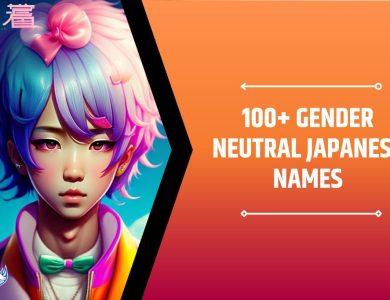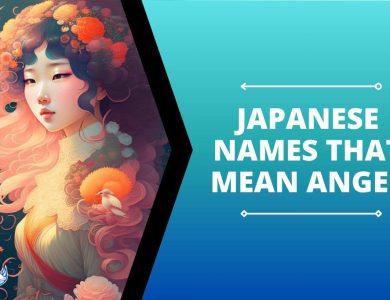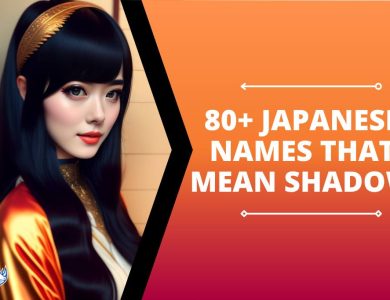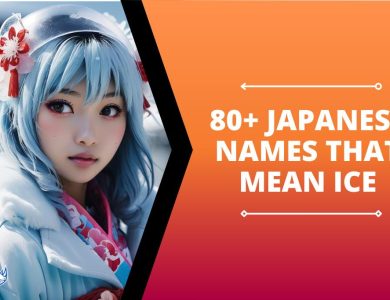55+ Japanese Names That Mean Death
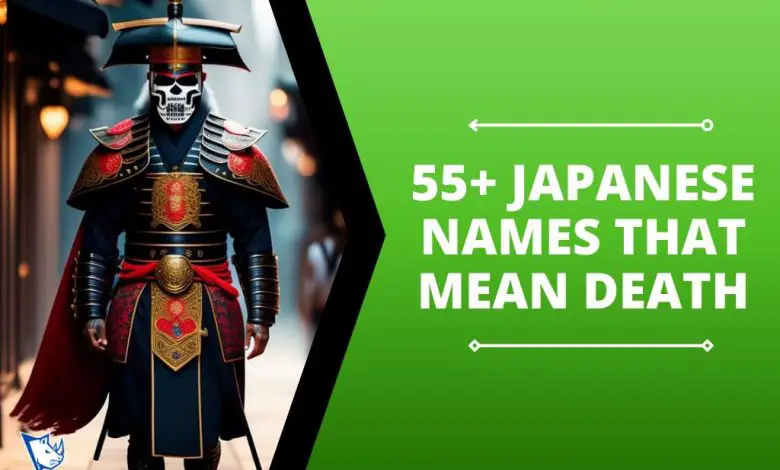
Have you ever wondered about the meanings behind Japanese names? While many names in Japanese culture symbolize positive qualities such as strength, beauty, or happiness, some names carry more somber connotations. In this article, we will explore Japanese names that mean death.
[name_gen id=2160]
It is important to note that these names are not meant to be morbid or negative, but rather reflect the rich cultural and historical significance of Japan. We will delve into the origins of these names, their meanings, and the cultural context in which they are used. Join us as we uncover the intriguing world of Japanese names that carr
Male Japanese Names That Mean Death
Discover powerful male Japanese names meaning death, their origins, and cultural significance.
- Akumu (悪夢): meaning “nightmare”
- Chinmoku (沈黙): meaning “silence” or “stillness”
- Daiki (大木): meaning “big tree” or “great life force”
- Enma (閻魔): meaning “devil” or “judge of the dead”
- Gekido (激怒): meaning “rage” or “fury”
- Haruka (遥か): meaning “distant” or “far away”
- Inochi (命): meaning “life” or “spirit”
- Jigoku (地獄): meaning “hell”
- Kage (影): meaning “shadow” or “reflection”
- Kyōfu (恐怖): meaning “fear” or “terror”
- Mazui (まずい): meaning “bad” or “unpleasant”

- Nokori (残り): meaning “remains” or “leftovers”
- Oni (鬼): meaning “demon” or “ogre”
- Rakuon (落穏): meaning “peaceful death”
- Shigan (死顔): meaning “death mask” or “deadly expression”
- Tenshi (天使): meaning “angel”
- Yami (闇): meaning “darkness” or “night”
- Zenmetsu (全滅): meaning “Total destruction” or “annihilation”
Female Japanese Names That Mean Death
Explore a curated collection of female Japanese names that mean death and mysterious meanings.
- Akuma (悪魔): meaning “demon” or “devil”
- Botan (牡丹): meaning “peony,” often associated with death and the afterlife in Japanese culture
- Chi (血): meaning “blood”
- Fuji (藤): meaning “wisteria,” often used as a symbol of death in Japanese literature and art
- Genshi (幻死): meaning “phantom death” or “deathlike trance”
- Hikari (光): meaning “light,” can be used as an ironic name for a character who brings darkness or death
- Izanami (伊邪那美): in Japanese mythology, the goddess of creation and death
- Kaen (火炎): meaning “flames” or “blaze”
- Kyōko (響子): meaning “echo” or “reverberation,” often associated with ghosts in Japanese folklore
- Megumi (恵): Meaning “blessing” or “grace” but can also mean “death” when written with different kanji characters”
- Oboro (朧): meaning “hazy” or “unclear,” often used to describe the realm between life and death in Japanese literature
- Reiko (零子): meaning “ghost child”
- Shinigami (死神): meaning “death god” or “grim reaper,” often depicted as a black-robed figure with a scythe in Japanese culture
- Tatsu (達): Meaning “accomplished” or “fulfilled,” but can also mean “death”
- Yami (闇): meaning “darkness” or “shadow,” often associated with death and the underworld in Japanese mythology
- Yūrei (幽霊): meaning “ghost” or “spirit,” often depicted as a pale, ghostly figure in traditional Japanese art and folklore
- Zen (禅): Meaning “meditation” or “enlightenment,” but can also mean “death” when written with different kanji characters.
Unisex Japanese Names That Mean Death
Explore unisex Japanese names with deep meanings of death. Uncover the cultural and symbolic significance behind each name.
- Akira (明): meaning “bright” or “clear,” can also be translated as “death” when written with different kanji characters
- Arashi (嵐): meaning “storm” or “tempest”
- Eien (永遠): meaning “eternity”
- Hoshi (星): meaning “star,” often associated with the afterlife in Japanese culture

- Jin (仁): meaning “compassion,” can be translated as “death” when written with different kanji characters
- Kaze (風): meaning “wind,” often associated with the afterlife in Japanese culture
- Kurai (暗い): meaning “dark” or “gloomy”
- Meiyo (名誉): meaning “honor” or “prestige”
- Naraku (奈落): meaning “abyss” or “hell”
- Yami (闇): meaning “darkness” or “shadow”
- Yoru (夜): meaning “night,” often associated with death and the afterlife in Japanese culture
Names Inspired by Death and the Afterlife
Discover hauntingly beautiful Japanese names inspired by death and the afterlife. Find unique, meaningful monikers for your baby or fictional characters.
- Akuma no Me (悪魔の目): meaning “eyes of the devil,” can be used for a character with supernatural powers related to death
- Anima (アニマ): derived from the Latin word for “soul”
- Banshee (バンシー): a female spirit in Irish mythology associated with death and the afterlife
- Elysium (エリュシオン): meaning “paradise” or “blissful place,” often used as a metaphor for the afterlife
- Hades (ハデス): in Greek mythology, the god of the underworld and death
- Kuroi Tsuchi (黒い土): meaning “black dirt,” can be used for a character associated with death or the afterlife
- Mauta (マウタ): derived from Maori mythology, refers to a spirit that guides souls to the afterlife
- Nirvana (ニルヴァーナ): in Buddhism, the state of enlightenment and liberation from suffering, often associated with death
- Reaper (リーパー): a personification of death in many cultures
- Yokai (妖怪): supernatural creatures in Japanese folklore, some of them are associated with death and the afterlife.
Also Read:
- 60+ Japanese Names That Mean Light
- 80+ Beautiful Japanese Names That Mean Snow
- 100+ Japanese Names That Mean Dark
Final Thought
Death may be a taboo subject in many cultures, but it holds a special place in Japanese culture. These japanese names that mean death represent different aspects of this complex and powerful theme. Whether you are looking for a name for your character or your child, these names can add depth and meaning to your writing and storytelling. So embrace the darkness and explore the rich cultural significance of death in Japanese society through these names.
